When it comes to caring for a dog, choosing the right collar isn’t just about aesthetics; it directly impacts your pet’s safety and comfort. With a multitude of dog collar options available on the market, from flat collars and martingale collars to harnesses and more, making the right choice can feel overwhelming. In this article, Sweet T Collars will help you understand the different types of dog collars, common materials used, and provide valuable tips to choose the best fit for your furry friend. Let’s dive into Dog Collar 101!
Types of Dog Collars
Choosing the right collar for your dog is a critical decision that influences their comfort, safety, and behavior. Understanding the various types of dog collars available can help you make an informed choice. Below, we dive into the most common types of dog collars, their uses, benefits, and considerations.
1. Flat Collar
These collars for dogs are one of the most common types of dog collars. They are designed to lie flat against the dog’s neck and typically consist of a strap that can be made from materials such as nylon, leather, or fabric. These collars come with a buckle or snap closure and an adjustable length to ensure a comfortable fit
Pros and Cons:
- Pros: Easy to put on and take off, versatile, widely available, can hold ID tags.
- Cons: Not ideal for dogs that pull a lot, potential for choking if not fitted correctly.
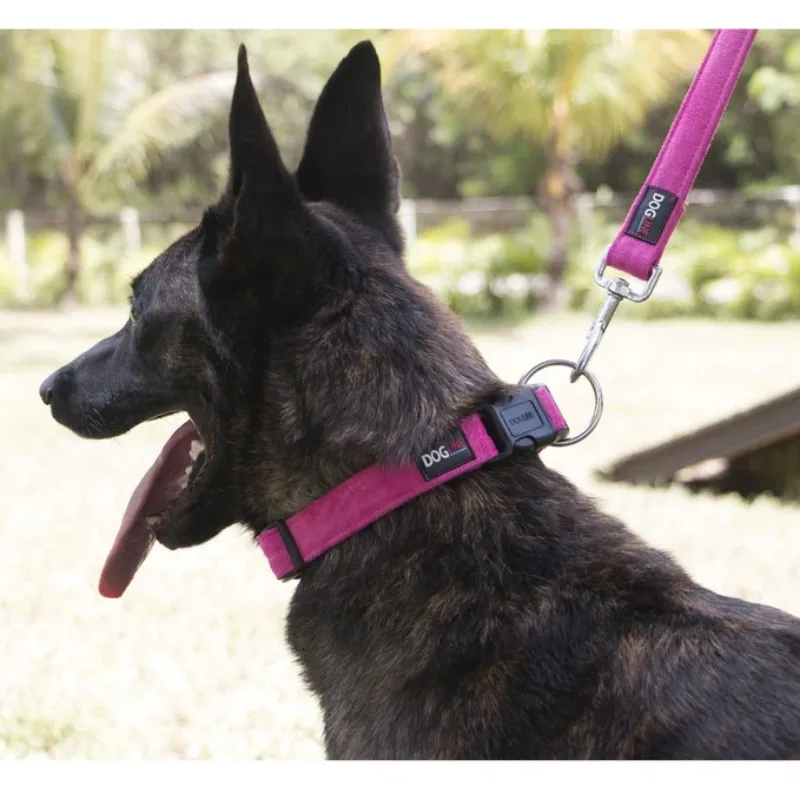
2. Martingale Collars
Martingale collars are designed with a unique loop system that tightens slightly when the dog pulls, providing more control without choking. Best suited for dogs with narrower heads, such as Greyhounds, and dogs prone to slipping out of traditional collars.
Benefits:
- Two-Loop Design:
- Main Loop: This loop goes around the dog’s neck and can be adjusted for a snug fit.
- Control Loop: This smaller loop tightens the main loop when the dog pulls, preventing the collar from slipping over the head.
- Size: Available in various sizes to fit different breeds and neck measurements.
- Adjustability: Easily adjustable for a perfect fit, ensures that the collar is snug but not too tight; it should fit comfortably when the dog is not pulling.
3. Harnesses
Harnesses are available in various styles, such as back-clip, front-clip, and dual-clip options, each providing different levels of control for dog owners. These harnesses offer several advantages over traditional collars, including reducing strain on the neck and throat, providing better control for strong pullers, and potentially being more secure. However, they can also be more complicated to put on and may cause chafing if not fitted correctly.
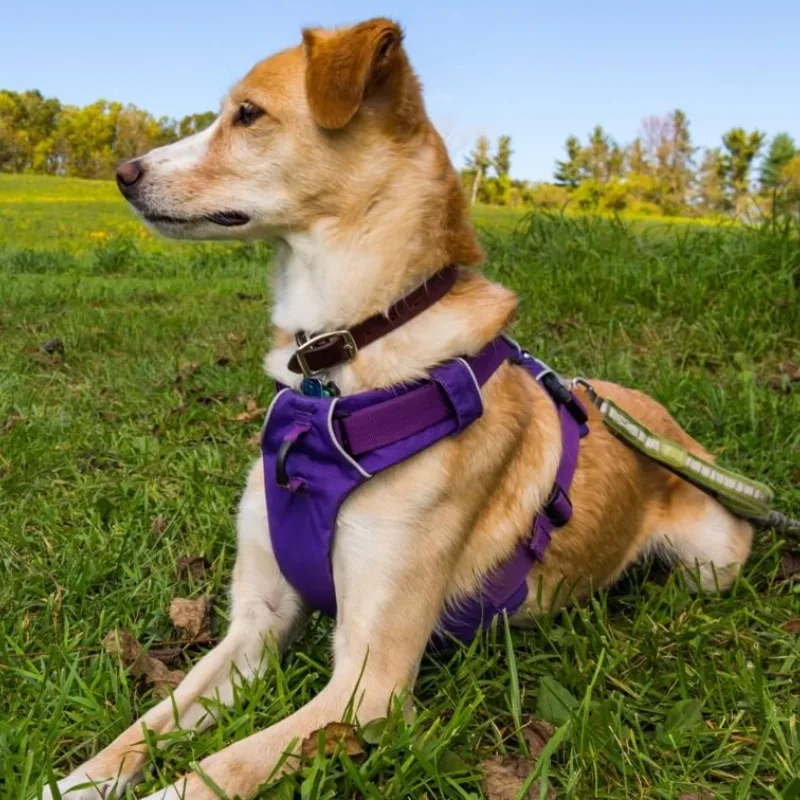
4. Head Collars
Head collars work by controlling the dog’s head and muzzle, providing a gentle way to guide and steer. Ideal for training dogs that are strong pullers or have difficulty with leash manners. They provide excellent control during walks.
5. Prong Collars
Prong collars, with their series of prongs that rest against the dog’s neck, tighten when the dog pulls. Often used in professional training settings; however, they require correct usage to avoid injury. Generally recommended only for specific training situations by experienced handlers.
6. Choke Chains
Choke chains tighten around the dog’s neck when tension is applied. Historically used for training and control. Modern views discourage their use due to potential for injury and stress. Safer alternatives like martingale collars or harnesses are typically recommended.
Materials Used in Dog Collars
A dog collar is crafted from a variety of materials, each selected for its unique properties and benefits. Understanding the different materials used can help you choose the best collar for your canine companion.
- Nylon: Nylon is a popular material used in dog collars due to its impressive durability and appealing aesthetics. Nylon collars come in a variety of colors and patterns, making them a versatile choice for pet owners. One of the key advantages of nylon collars is that they are affordable, easy to clean, and lightweight, ensuring comfort for your dog. However, they do have some drawbacks; nylon can sometimes cause chafing and may not be as long-lasting as leather collars.
- Leather: A leather dog collar is renowned for their longevity and comfort, offering a timeless and classic look that becomes increasingly comfortable with use. Additionally, they provide a high level of comfort for your dog. However, leather collars do have some downsides; they tend to be more expensive and require regular maintenance to keep them in good condition.
- Biothane: Biothane is a synthetic material favored for dog collars due to its waterproof and easy-to-clean properties. It mimics the look and feel of leather while being much easier to maintain. The advantages of Biothane collars include that they are waterproof. However, these collars are less breathable compared to other materials, which can be a drawback in certain situations.
- Metal Chains: Metal chain dog collar is extremely strong and are often used for large, strong dogs due to their durability. However, they come with several issues, such as being heavy and potentially harmful if not used correctly. While these collars can effectively manage powerful dogs, they require careful handling to prevent injury and ensure the safety and comfort of your canine companion.
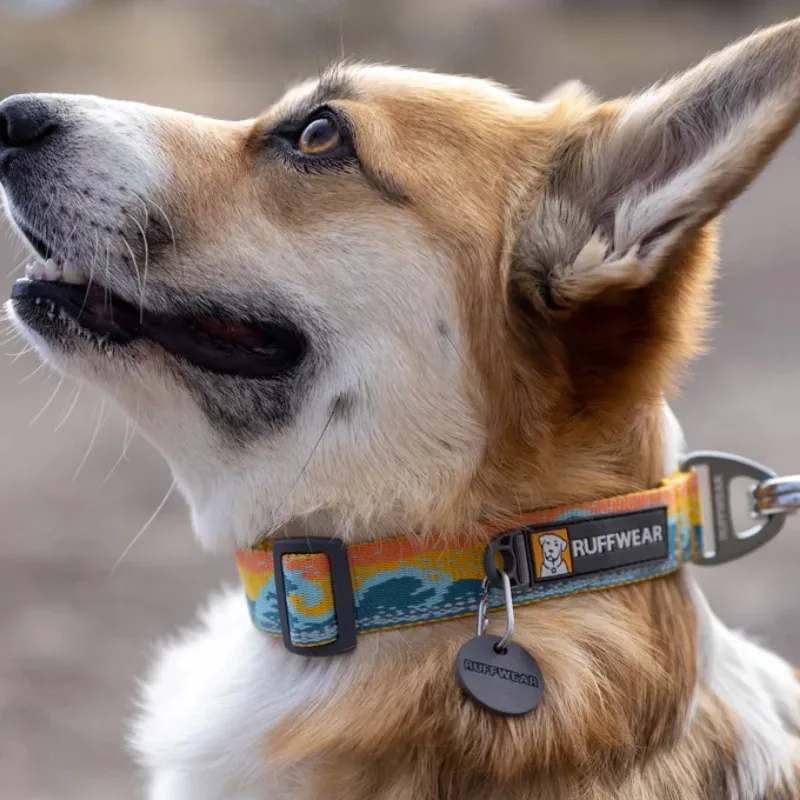
How to Choose the Best Fit for Your Dog
- Measuring Your Dog Correctly
- Step-by-Step Guide: Use a flexible tape measure to find the circumference of your dog’s neck and add two inches for comfort.
- Tips for Ensuring Comfort and Safety: Ensure the collar is snug but not tight, and you should be able to fit two fingers between the collar and the dog’s neck.
- Considering Your Dog’s Age, Size, and Breed
- How Different Factors Influence Collar Choice: Puppies need adjustable collars, while seniors may require softer materials.
- Breed-Specific Recommendations: Narrow-headed breeds may benefit from martingale collars, while sturdy breeds may need stronger materials.

- Evaluating Your Dog’s Activity Level and Behavior
- Active vs. Sedentary Dogs: Active dogs may require more durable, waterproof collars.
- Behavioral Issues That May Affect Collar Choice: Dogs that pull might benefit from a harness or a head collar.
- Safety Features to Look For
- Quick-Release Buckles: Essential for emergencies to quickly remove the collar.
- Reflective Materials: Increases visibility during nighttime walks.
- Customization and Identification Tags
- Importance of ID Tags: Critical for ensuring your dog can be returned if lost.
- Customization Options and Benefits: Personalized collars can include the dog’s name and your contact information.
Sweet T Collars – Where to Buy Reputable Dog Collars You Should Know
Sweet T Collars is renowned for its high-quality, stylish, and dependable dog collars. Buy directly from Sweet T Collars‘ official website or reputable pet stores. Ensure authenticity for the best experience.
- Stylish Designs: Wide range of contemporary and classic patterns.
- Safety Features: Secure fasteners, adjustable straps, and reflective options.
- Eco-Friendly Options: Sustainable materials for environmentally conscious pet owners.
- Customization Options: Personalized with your dog’s name or contact info.
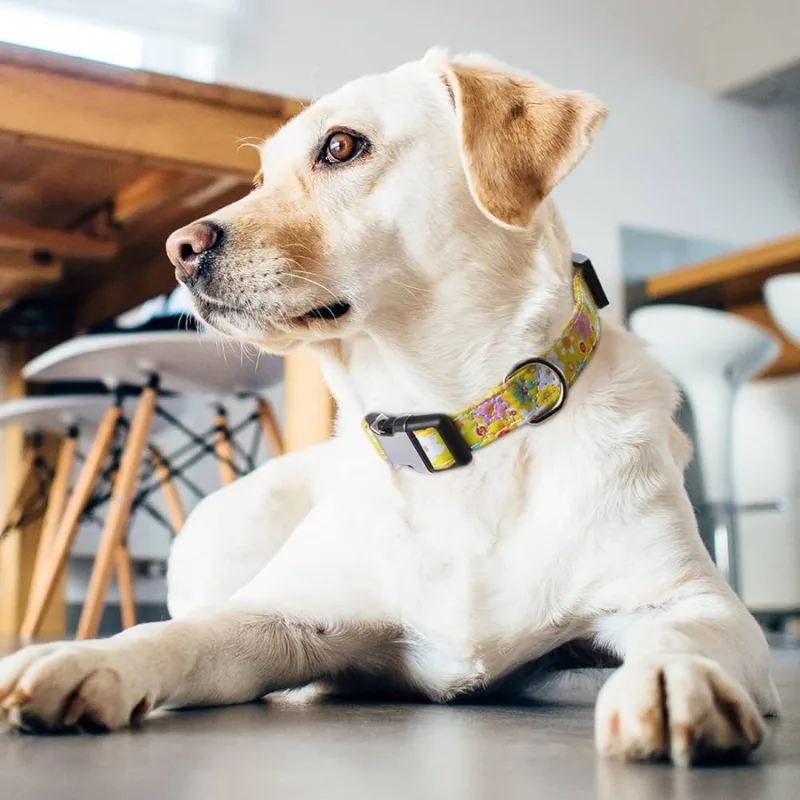
Choosing the right dog collar involves considering various factors, from material and type to your dog’s specific needs. By understanding the pros and cons of each option and how to maintain your collar, you’ll ensure your pet’s safety, comfort, and happiness. Make an informed choice and enjoy the peace of mind that comes with knowing your dog is well-equipped and safe.
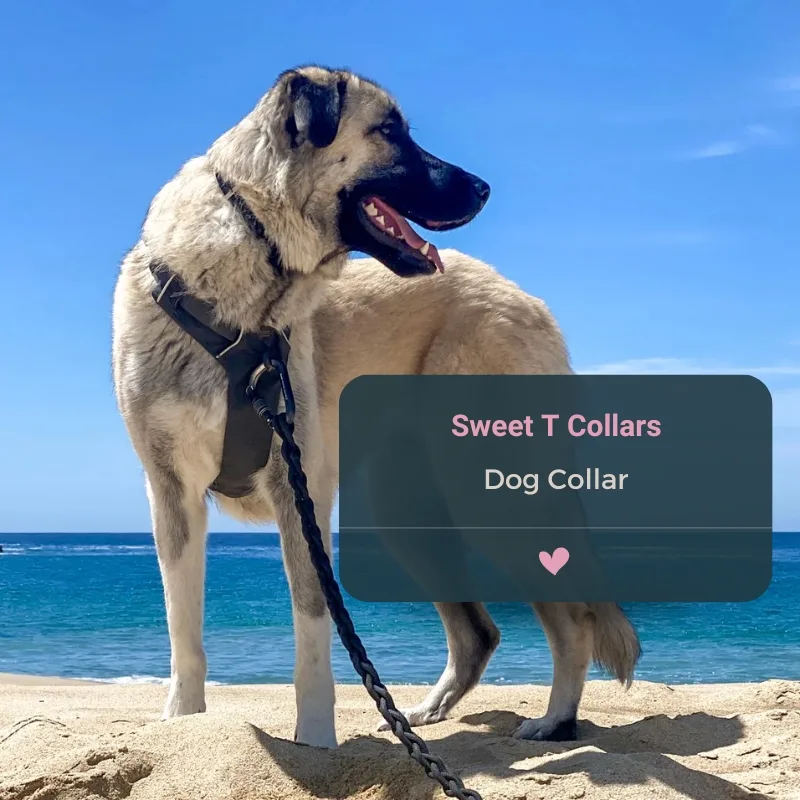
Leave a Reply